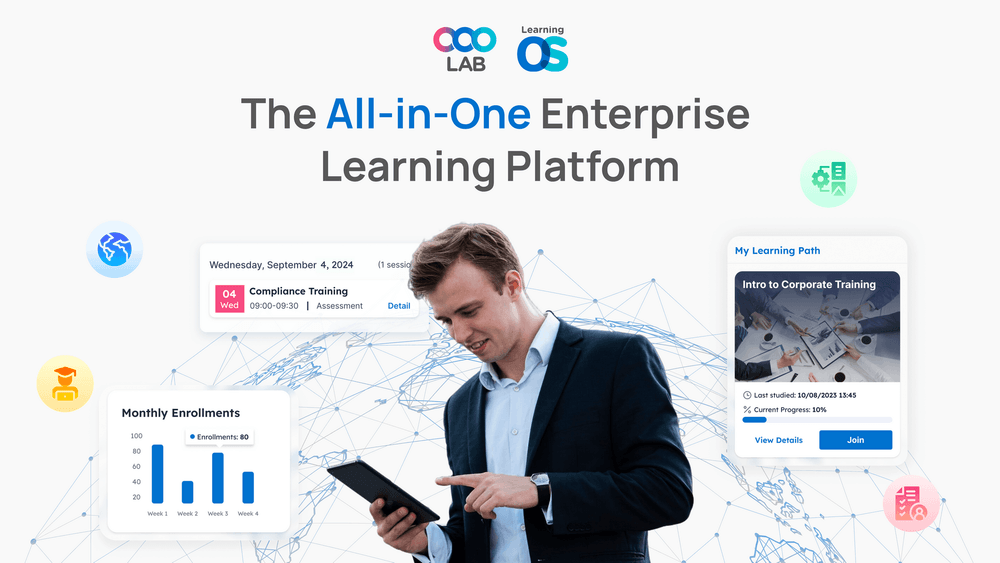

Sales success depends on more than just talent—it requires continuous learning, adaptability, and mastery of essential sales skills. In a competitive market, organizations that prioritize structured sales training programs see improved performance, higher win rates, and better customer relationships.
A crucial metric in assessing sales effectiveness is the skill quotient, which measures an individual’s ability to acquire, retain, and apply skills in real-world sales scenarios. The higher the skill quotient of a sales team, the more equipped they are to handle objections, build trust with clients, and close deals efficiently.
Traditional sales training methods often fall short because they focus solely on knowledge transfer rather than skill development. To truly enhance sales proficiency, organizations must adopt innovative training approaches that foster continuous learning and adaptability.

The skill quotient (SQ) represents an individual’s ability to learn, apply, and improve their skills over time. Unlike IQ, which measures intelligence, or EQ, which assesses emotional intelligence, SQ is dynamic and can be developed with targeted training. In sales, a high SQ ensures that representatives can:
Communicate effectively and persuasively
Analyze customer needs and deliver personalized solutions
Handle objections and negotiate successfully
Stay updated on industry trends and competitor strategies
Adapt to new sales tools and technology
Sales environments are constantly evolving, with shifts in consumer behavior, emerging competitors, and advancements in sales technology. Reps who fail to develop their skill quotient risk falling behind. According to a Gartner study, organizations that focus on continuous skill development see a 20% increase in sales productivity.
Sales leaders must ensure their teams receive ongoing training that enhances their skill quotient, making them more agile and better prepared for challenges in the sales process.
>>> Read more: Skill Quotient Training Tool
>>> Read more: Why Is Skill Quotient Important for Employees?
Strong communication skills are the backbone of successful selling. Sales reps must be able to articulate the value of their products clearly while also listening actively to understand customer pain points.
Strategies to improve communication include:
Role-playing exercises to practice persuasive techniques
Using storytelling to make sales pitches more engaging
Active listening training to improve rapport-building
Modern sales teams leverage data to refine their approach. Reps with high skill quotient understand how to use customer insights, predictive analytics, and key performance indicators (KPIs) to make informed decisions.
A report by Modor Intelligence found that data-driven sales organizations outperform competitors by 23%. By integrating AI-driven analytics into sales training, companies can help reps personalize interactions and anticipate client needs more effectively.
Handling objections and negotiating favorable deals are critical sales skills. Sales reps must learn to:
Identify and address customer concerns proactively
Present alternative solutions to keep deals moving forward
Recognize when to push and when to compromise
A structured Enterprise LMS can provide interactive simulations that help sales reps practice real-world negotiation scenarios, improving their ability to close deals under pressure.
Reps must have in-depth knowledge of their product offerings to confidently engage with prospects. Additionally, staying updated on industry trends and competitor strategies enhances their ability to position solutions effectively. Ways to improve product and industry expertise include:
Continuous learning through microlearning modules
Real-time updates on industry changes via an Enterprise LMS
Competitive analysis training to understand market positioning
Sales success isn’t just about logic; it also involves emotional intelligence (EQ). Understanding customer emotions, responding empathetically, and adapting sales approaches based on buyer psychology can significantly impact sales outcomes.
Research from Harvard Business Review indicates that sales reps with high EQ outperform their peers by 25%. Sales training should emphasize EQ development through interactive case studies and real-world practice.
Book Free Demo with us. Bring your Training and Learning to a new height with LearningOS.

>>> Read more: How To Measure Skill Quotient In Employees?
>>> Read more: Mastering Skill Quotient Measurement: Key Metrics and Strategies for Accurate Assessment
Before launching a training initiative, companies must evaluate their team’s current capabilities. Sales leaders can use performance metrics to identify skill gaps or self-assessments to gauge individual strengths and weaknesses
Traditional, lengthy training sessions often lead to information overload. Instead, implementing microlearning—bite-sized training modules focusing on one concept at a time—improves retention and engagement.
Additionally, adaptive learning powered by AI ensures personalized training by adjusting content based on a rep’s progress. An Enterprise LMS with AI capabilities can automate this process, delivering tailored learning experiences.
Sales training should be interactive and engaging. Incorporating gamification elements such as:
Leaderboards to encourage friendly competition
Quizzes to reinforce knowledge retention
Rewards for achieving training milestones
Ongoing coaching is essential for continuous skill development. Sales managers should provide real-time feedback through:
AI-driven performance tracking tools
One-on-one coaching sessions
Peer learning through collaborative sales training
An Enterprise LMS integrated with CRM tools allows organizations to track how training impacts real sales interactions.
To ensure training programs deliver tangible results, organizations must track progress using key sales metrics such as:
Improvement in deal close rates
Increase in average deal size
Higher customer satisfaction scores
By analyzing these KPIs, sales leaders can refine their training strategies and maximize ROI.
>>> Read more: Social Quotient Vs Skill Quotient: A Comprehensive Analysis
>>> Read more: Skill Quotient Assessment Tools: Unlocking Employee Potential
Building sales proficiency and elevating the skill quotient of your team is essential for long-term success. Organizations that invest in structured sales training programs, integrate modern learning technologies, and provide continuous coaching will equip their salesforce with the skills needed to thrive in competitive markets.
By leveraging an Enterprise LMS, implementing adaptive learning, and focusing on data-driven sales strategies, businesses can transform their sales teams into high-performing professionals who drive revenue and foster strong customer relationships.
At OOOLAB (pronounced 'uːlæb'), our mission is to make complex learning operations simple. We aim to positively impact the lives of over 1,000,000 learners and educators by the end of 2026.
OOOLAB's LearningOS provides educational institutions and corporate enterprises with an all-in-one solution to create and deliver engaging learning experiences.
We meet organizations' needs or support your growth. We provide undivided attention. We provide:
1. Dedicated success manager: We offer direct communication with a real human who'll discuss your enterprises unique learning operations and goals.
2. Personalized setup: Our team will help you transition to LearningOS on your schedule, one step at a time.
3. Around the clock support: Get help from us any time, and in any time zone.
We have recently launched a new AI training tool, Skill Quotient OS, designed to elevate hybrid training to new heights. It offers role-play exercises with scenarios and assessments. This tool can apply in sales training, corporate development and customer support training in any industry.
Reach out to us at: LinkedIn, Facebook, Instagram, Tiktok, X
1. What are the main benefits of LearningOS
Our platform is easy to use and automates all aspects of your learning operations. It efficiently manages complex tasks, allowing you to concentrate on delivering exceptional learning experiences.
2. What main features does LearningOS offer?
Our all-in-one software solution combines a Content Management System, a Learning Management System, content authoring tools, and a mobile friendly Learner Portal.
3. Can your platform be used for corporate enterprises?
Absolutely! LearningOS is an Enterprise LMS is a great fit for corporate learning. In fact, we have clients with up to 700,000 employees using LearningOS! Upskill your workforce by creating and assigning interactive eLearning content while effortlessly tracking employee progress.
4. Who currently uses your platform?
Our platform is currently used by over 120,000+ learners, parents, and employees across 21 countries worldwide!
5. What types of content options are available on your platform?
We offer ready-to-go curriculums for various educational purposes or our expert design team can build a custom course for you. We can also upload your existing learning materials and enhance them digitally.
6. What is unique about LearningOS?
Our platform, designed by educators for educators, provides you with all the tools you need to scale. Build and promote your own hybrid and blended learning courses and save money on licensing fees by owning your own proprietary content.
7. How can I get started?
Schedule a meeting with our experts and we’ll talk about how our platform can address your unique challenges and help to grow your business.